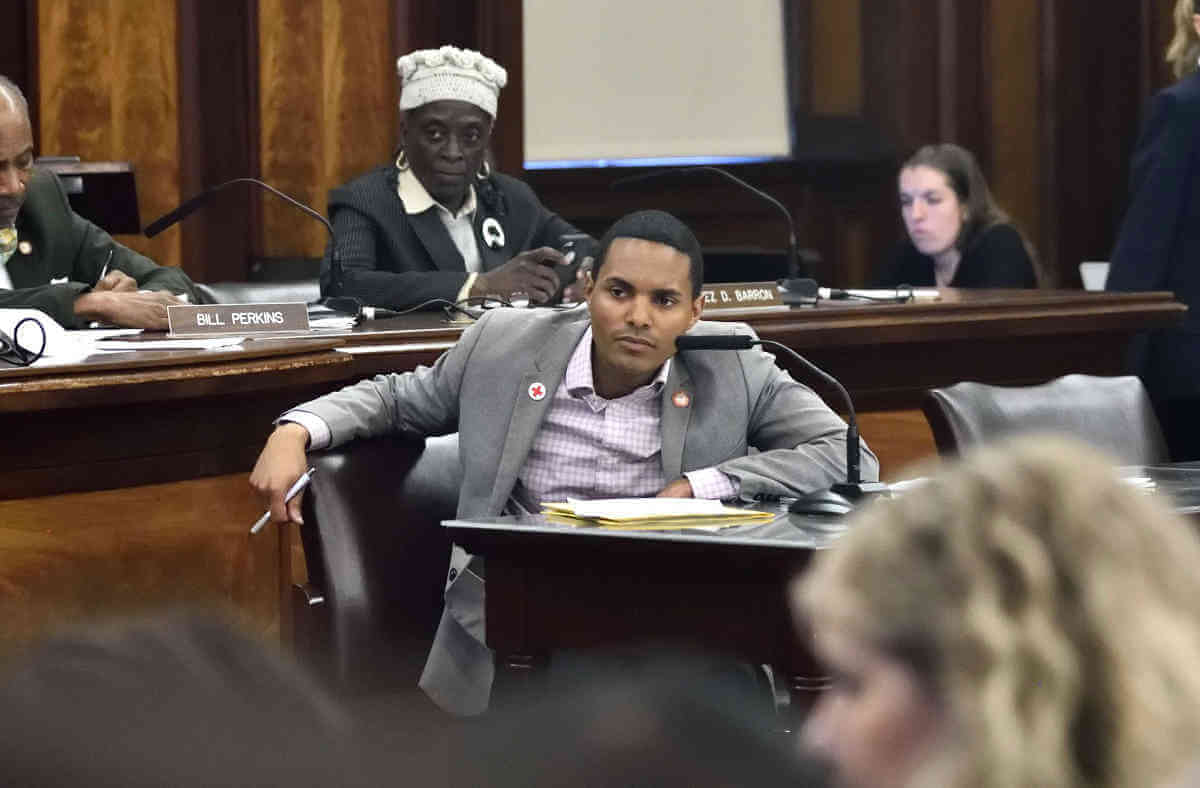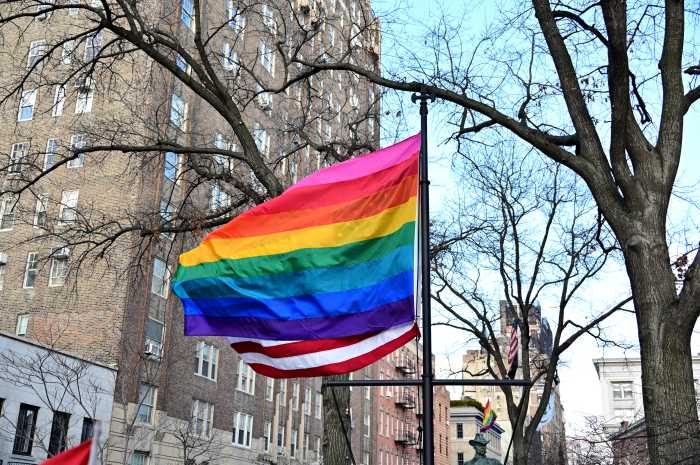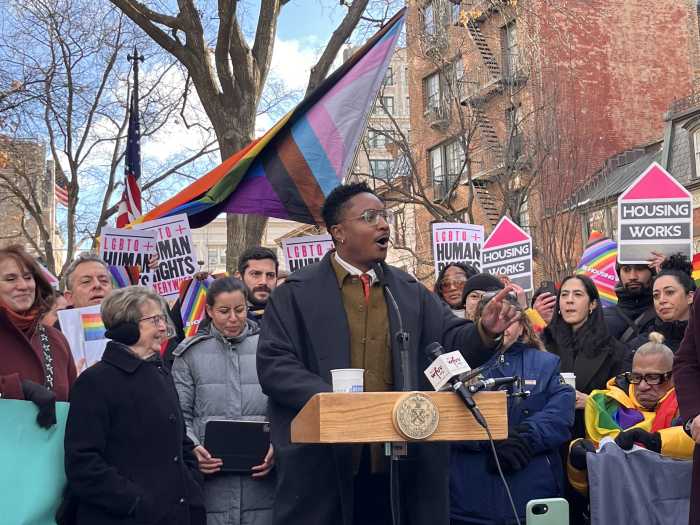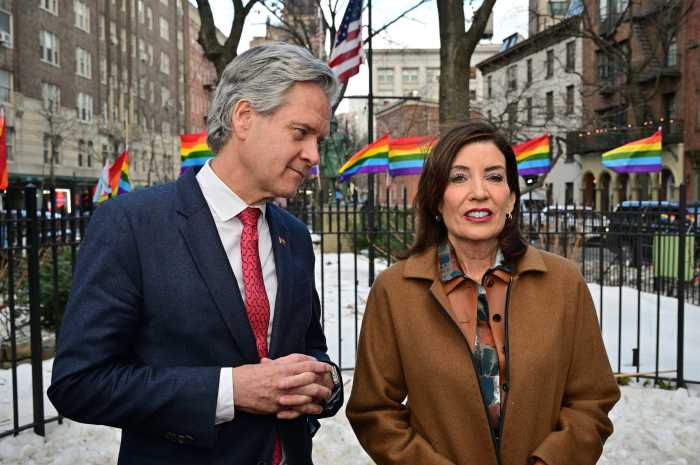Building an imposing war chest a year ahead of the June 2020 Democratic primary, out gay congressional candidate Ritchie Torres blew his opponents out of the water with a whopping $522,000 fundraising haul from April 1 to June 30 of this year.
Overall, Torres, a second-term city councilmember who is the first openly LGBTQ elected official from the Bronx, easily outraised State Assemblymember Michael Blake, who brought in $120,941, and homophobic Councilmember Ruben Diaz, Sr., who raised $80,766. The three candidates are competing to replace outgoing US Representative José Serrano in the 15th Congressional District.
The 31-year-old Torres would be the first out gay black member of Congress and the first out gay Latinx member of Congress.
One striking conclusion from the most recent financial disclosures is how much of the total money raised in the race is coming from outside the Bronx. Torres’ filing shows 61 donors in the borough, totaling $44,575, according to Federal Election Commission (FEC) data. That marked the most Bronx donations and largest haul from the borough among candidates, but less than nine percent of his total war chest.
In the filing from Blake, who is a vice chair of the Democratic National Committee (DNC), only seven donors from the Bronx are identified. They chipped in $5,414 or less than five percent of his total.
Diaz’s totals in the Bronx — 44 donors giving a sum of $42,565 — reflect the greatest share of borough contributions. Even there, however, that represents only 52 percent of his overall war chest.
It should be noted that $21,111 of Diaz’s total and $24,0312 in Blake’s donations were labeled “unitemized individual contributions,” meaning those donations were less than $200 and therefore did not require identifying information including names and residential addresses.
In total, then, in one of the nation’s poorest congressional districts, just 13 percent of $723,707 raised so far has come from donors identified as residents of the Bronx.
With a long record of anti-LGBTQ rhetoric and actions, Diaz, a Pentecostal minister, has maintained a loyal base of supporters both in the Bronx and across the tri-state area, as shown by his efforts in recent years to mobilize protesters on issues including marriage equality.
Much of Torres’ total funds came from elsewhere, including from deep-pocketed contributors and progressive political action committees. He received two $5,600 donations — one from the construction management firm Hudson Meridian Construction Group and another from wealthy hedge fund donor Donald S. Sussman. Hudson Meridian builds luxury residential high-rises, public housing, and other buildings in the metropolitan area, while Sussman’s company, Paloma Partners, was a major driver of Hillary Clinton’s 2016 presidential campaign.
Other top contributors to Torres’ campaign were the Equality PAC, which is the political branch of the Congressional LGBT Equality Caucus, and a PAC affiliated with out gay Rhode Island Democratic Representative David Cicilline, a co-chair of the Equality Caucus. Each group chipped in $5,000.
His donors also included dozens of attorneys, consultants, teachers, and a handful of CEOs, as well as more than two-dozen people who work in real estate.
Blake’s campaign similarly welcomed donations from dozens of attorneys, corporate executives, and consultants, though his top donations did not exceed $2,800. He received a $500 boost from Tom Perez, the DNC chair.
The pattern of donations to Diaz’s campaign was starkly different. Twenty-seven of his of 81 contributors said they were either ministers or have religious-based occupations. His other top contributors were Pedro Alvarez, who runs a financial solutions and tax services company called P. Alvarez Associations Corp., who chipped in $2,800, and Alltown Car Service president Hector José Diaz, who gave Diaz $2,500.
The candidates still have nearly a year to continue raising money before voters head to the polls in June of 2020 for the Democratic primary in the South Bronx district. The general election, slated for November of next year, will mark the end of a three-decade tenure for Serrano, who took office in 1990.


































